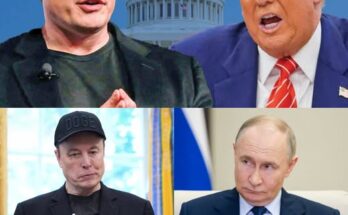In a significant escalation of the ongoing trade conflict, the Trump administration has announced a new tariff of up to 245% on selected Chinese imports. This decision is seen as a direct response to Beijing’s recent export restrictions and retaliatory tariffs imposed on American goods.
The new tariff marks a dramatic increase in economic tensions between the two largest economies in the world. U.S. officials stated that the move aims to protect American industries from what they consider unfair trade practices by China, including government subsidies and restrictions on foreign companies.
Analysts warn that the heightened tariffs could lead to higher prices for American consumers, supply chain disruptions, and increased uncertainty in global markets. China is expected to respond with further countermeasures, potentially deepening the standoff.
This latest development underscores the ongoing struggle for economic dominance and may have long-term consequences for international trade relations.
U.S. Slaps Up to 245% Tariffs on Chinese Imports, Deepening Trade War
In a bold and controversial move, the Trump administration has announced the imposition of new tariffs reaching up to 245% on a wide range of Chinese imports. This unprecedented decision marks one of the most aggressive actions yet in the ongoing trade dispute between the United States and China, sharply escalating tensions between the world’s two largest economies.
According to White House officials, the measure comes in direct response to China’s recent export restrictions, as well as retaliatory tariffs Beijing has imposed on American goods. The administration argues that such actions by China have placed American industries and workers at a disadvantage, and that strong countermeasures are necessary to ensure fair trade practices and protect national interests.
“This is about standing up for American jobs, American factories, and American innovation,” a senior U.S. trade official stated. “For too long, China has manipulated the playing field through subsidies, forced technology transfers, and discriminatory policies against U.S. companies. This administration will not sit back and watch American workers suffer.”
The sweeping tariffs are expected to affect a range of products, potentially including electronics, steel, textiles, and consumer goods. While the full list of impacted imports is still being finalized, businesses across various sectors are already bracing for potential cost increases and disruptions in their supply chains.
Economic Repercussions and Global Impact
Economists and trade analysts are sounding the alarm over the potential fallout from the new tariffs. Many warn that the drastic increase could trigger price hikes for American consumers, as companies pass on higher import costs. Additionally, industries reliant on Chinese components and raw materials may experience delays, shortages, or production slowdowns.
“The ripple effects of this decision will be felt across the global economy,” said Dr. Elaine Stewart, an international trade expert. “We could see heightened volatility in stock markets, shifts in global supply chains, and a more fragmented world trade system if this tit-for-tat approach continues.”
China has condemned the U.S. move as “economic bullying” and vowed to take “necessary countermeasures”, fueling concerns of a prolonged and increasingly hostile trade war. In previous disputes, Beijing has responded with its own tariffs, targeting key American exports such as soybeans, automobiles, and aircraft—especially those from states critical to U.S. elections.
Long-Term Strategic Implications
Beyond the immediate economic consequences, this new development highlights the deeper geopolitical struggle between Washington and Beijing. Both nations are vying for global influence, technological leadership, and economic supremacy in the 21st century. The trade war is seen by many as a symptom of this broader rivalry.
Some experts argue that while the tariffs might bring short-term leverage, they could also alienate allies, weaken international institutions, and damage the multilateral trading system. Others support the administration’s hardline stance, claiming it’s long overdue and necessary to rein in what they see as decades of unbalanced trade practices by China.
As both sides dig in their heels, businesses, investors, and consumers around the world are watching closely. The coming weeks may determine whether this economic conflict spirals further or gives way to a renewed effort at negotiation and compromise.



Awesome https://shorturl.at/2breu
Awesome https://lc.cx/xjXBQT